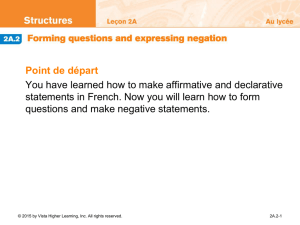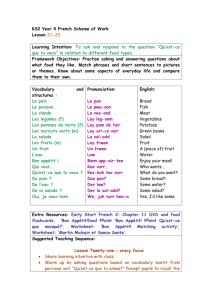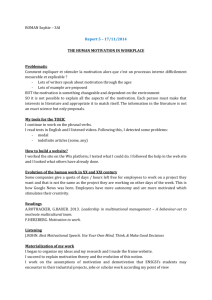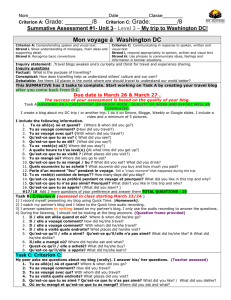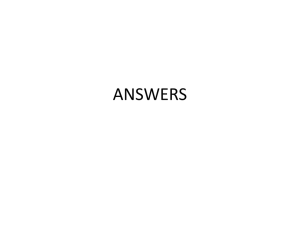Interrogatives in French 1. Est-ce que Est
advertisement
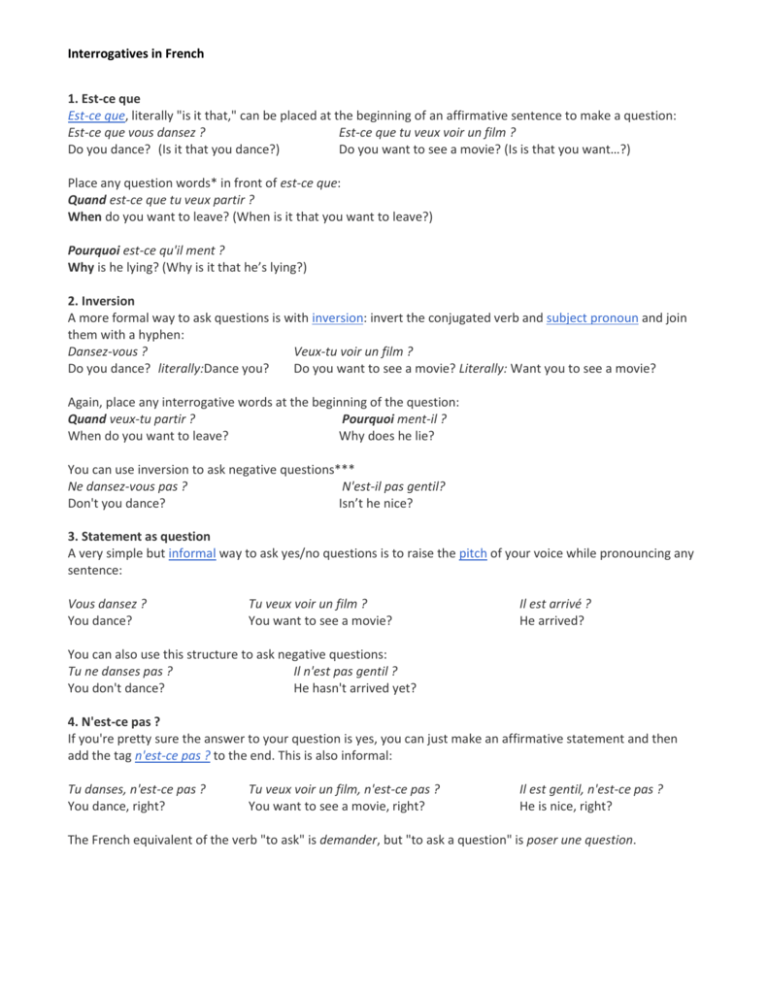
Interrogatives in French 1. Est-ce que Est-ce que, literally "is it that," can be placed at the beginning of an affirmative sentence to make a question: Est-ce que vous dansez ? Est-ce que tu veux voir un film ? Do you dance? (Is it that you dance?) Do you want to see a movie? (Is is that you want…?) Place any question words* in front of est-ce que: Quand est-ce que tu veux partir ? When do you want to leave? (When is it that you want to leave?) Pourquoi est-ce qu'il ment ? Why is he lying? (Why is it that he’s lying?) 2. Inversion A more formal way to ask questions is with inversion: invert the conjugated verb and subject pronoun and join them with a hyphen: Dansez-vous ? Veux-tu voir un film ? Do you dance? literally:Dance you? Do you want to see a movie? Literally: Want you to see a movie? Again, place any interrogative words at the beginning of the question: Quand veux-tu partir ? Pourquoi ment-il ? When do you want to leave? Why does he lie? You can use inversion to ask negative questions*** Ne dansez-vous pas ? N'est-il pas gentil? Don't you dance? Isn’t he nice? 3. Statement as question A very simple but informal way to ask yes/no questions is to raise the pitch of your voice while pronouncing any sentence: Vous dansez ? You dance? Tu veux voir un film ? You want to see a movie? Il est arrivé ? He arrived? You can also use this structure to ask negative questions: Tu ne danses pas ? Il n'est pas gentil ? You don't dance? He hasn't arrived yet? 4. N'est-ce pas ? If you're pretty sure the answer to your question is yes, you can just make an affirmative statement and then add the tag n'est-ce pas ? to the end. This is also informal: Tu danses, n'est-ce pas ? You dance, right? Tu veux voir un film, n'est-ce pas ? You want to see a movie, right? Il est gentil, n'est-ce pas ? He is nice, right? The French equivalent of the verb "to ask" is demander, but "to ask a question" is poser une question. Interrogatives in French *There are two main types of questions: 1. Yes/no questions, also known as polar questions or closed questions (questions fermées), ask for a simple yes or no answer. 2. Information questions, also known as WH questions, constituent questions, or open questions (questions ouvertes), ask for information with question words, like who, what, when, where, why, which, how, how much/many. See links below for lessons on French question words. 1. Qui- who 2. Quoi- what (thing) 3. Que- what (info), often used with est-ce que, becoming “Qu’est-ce que” 4. Quand- When 5. Où- where 6. Comment- How 7. Pourquoi- Why **When using inversion with the he/she/one form (il, elle, or on) and a verb that ends in a vowel, you must add t- between the verb and subject pronoun for pronunciation sake: Aime-t-il les films ? - Does he like movies? Écoute-t-elle la radio ? - Does she listen to the radio? A-t-on décidé ? - Have we decided? ***There is a special French word, si, that is used only when responding in the affirmative to a negative question. (I wish English had a word like this!) Affirmative questions Negative questions - Vas-tu au ciné ? - Oui ! - Ne vas-tu pas au ciné ? - Si ! - Are you going to the movies? - Yes! - Aren't you going to the movies? - Yes (I am)! - Est-ce que tu veux venir ? - Oui ! - Do you want to come? - Yes! - Tu ne veux pas venir ? - Si ! - You don't want to come? - Yes (I do)!
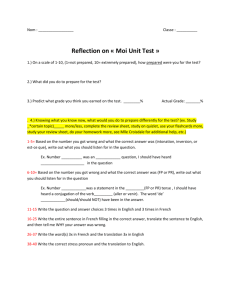
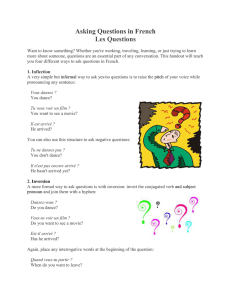
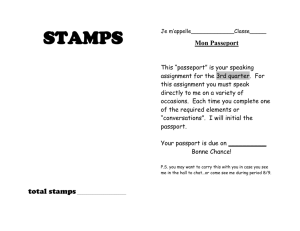
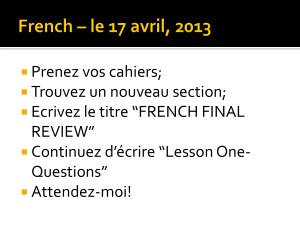
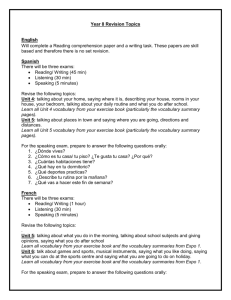
![Download[MS WORD] - OLA Girls' College](http://s3.studylib.net/store/data/009573871_1-d6c40cf083553b1020f3f3c101144d7f-300x300.png)
